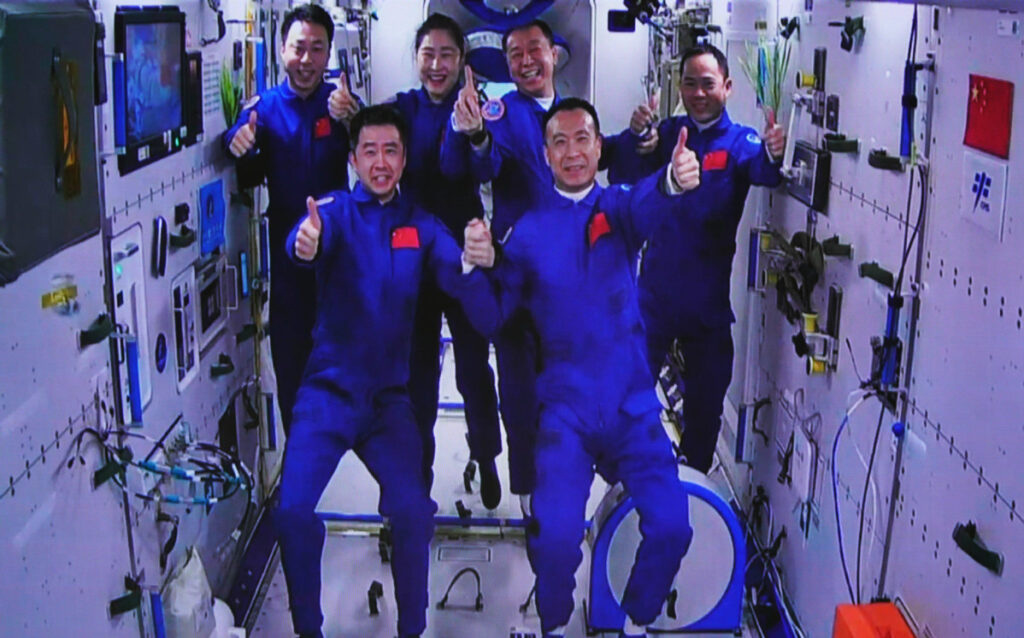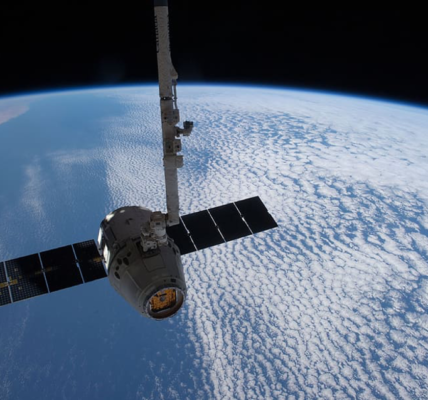
The United States should seek common ground with China for collaboration in space, says Robert Gray, the Managing Partner of TerraCap. In an interview with NSN at the Meridian Space Conference in Washington, Gray, an investor in C5 Capital, called for a change in the United States’ approach to China and other countries considered unfriendly.
Gray expressed concern that messages from the US about China may contribute to a sentiment among Chinese citizens that they are being deliberately held back. This perspective is evident, he said, in publications like the China Daily newspaper.
“The Americans don’t want us to be successful. Those drumbeats are reminiscent of historical drumbeats of war—they’re very close, and it’s alarming. I think we would do well to promote a message highlighting the positive aspects of China and the Chinese people, conveying that the American public is supportive of Chinese success,” he cautioned.
Welcoming China and its ideas into some spheres may seem a bit dangerous, Gray said, “but not to do so is also dangerous so we should continue to work on collaborative solutions where possible.”
He noted that diplomats, tend to appreciate the need to take time to find some kind of common ground with someone who otherwise appears to be an adversary.
The United States can be a “little bit tone deaf, maybe even arrogant to not notice how much these narrow messages are being absorbed.” He suggested that this could be balanced by emphasising that the US harbours no animosity and is seeking collaborative opportunities in space, on the Moon, for missions to Mars, or in the fields of idea-sharing and medicine development the best minds in both nations can work toward greater good and demonstrate to respective governments that it is more constructive to work together than apart.
His warning comes during a week in which Chinese media outlets criticised the US space industry for becoming “overly driven by capital interests, neglecting fundamental astronaut safety.” The Chinese English news publication Global Times accused SpaceX of indifference due to its decision to carry out its first private spacewalk while two astronauts are stranded at the International Space Station (ISS). The publication noted that recurring major issues at the ISS warn against “the decline in NASA’s management system and the research and development capability of major US space heavyweights like Boeing.”
NASA Administrator Bill Nelson has since announced that a SpaceX Crew Dragon capsule will bring home the two NASA astronauts who have remained on board the ISS for about 80 days due to issues plaguing the Boeing Starliner spacecraft. This is expected to take place by February next year.
Private and commercial space companies offer the opportunity to protect intellectual property for commercial manufacturing in space. Gray explained that manufacturers and computer chip companies from many nations could be welcomed into space with assurance that their intellectual property would be protected.
“We’re not going to steal it from you. You can produce medicine for a Chinese pharmaceutical company, just as Pfizer or Merck would, and say, ‘It’s yours. You’re a customer. You conduct your project up there, and you get to keep it. You won’t be shut out so that you feel the need to create your own version somewhere else.’”
Gray acknowledged that when military products are involved, navigating the complexities could become tricky. He cited Palantir as a company that “has done very well in the geopolitical arena,” suggesting that this example could be “extrapolated to countries considered unfriendly to us.”
However, he said there would have to be guard rails and it should handled carefully, but he said it could done and “it must be done.”
Regarding the potential of Axiom Space, Gray stated that Axiom has the potential to grow to be “as big as Apple, Microsoft, or SpaceX someday.” He highlighted that Axiom is the only company allowed to attach their modules to the existing International Space Station, which is set to be decommissioned.
“Their modules are intended to be big enough to put two double-decker buses inside. So, these are significantly larger than what most people might imagine when you see pictures of how crowded it is inside these modules today. “
The advantages of commercial enterprises in space, Gray explained, differ from the ISS, which operates as a consortium of governments. As Michael Suffridini, former CEO of Axiom, has pointed out, agreeing on design for the ISS has proven difficult.
In contrast, for a private manufacturer “developing medicines, metal alloys, or computer chips, you wouldn’t want your most innovative idea shared with the world before you’ve had a chance to harness the market potential for it. ”Axiom Space, he said, “ will have clients who are private and they can do their pay to have their materials brought up to the station, do the experiments and reap the rewards of that.”
Regarding the high costs of transporting materials to and from space, which is in the order of about $1000 per kilogram, Gray said this cost is initially very expensive but noted that many things, like telephones, automobiles, and airline travel, were once prohibitively expensive for the affluent but became accessible over time as they scaled. Private commercial space companies, Gray said can do things generally cheaper and over time, he believes it would be a snowball or flywheel effect.
“If you want to see how to create a specific metal alloy in space, let a metal alloy company fund that experiment. Why should taxpayers subsidize something when they would prefer to direct resources toward teachers, firefighters, road building, and medical care?”
In contrast, he pointed out that if a commercial company wants to use gallium arsenide to manufacture chips in space—and that represents a $1 billion potential—companies will spend hundreds of millions of dollars to get it done.
“It doesn’t cost taxpayers anything. And if the company makes a mistake, it’s on them. Their shareholders can adjust their stock prices or express dissatisfaction. But for some companies that take these kinds of risks, they are large enough to absorb the loss without burdening society in the short run while benefiting all in the long run,” Gray concluded.











































































































































































































































































































